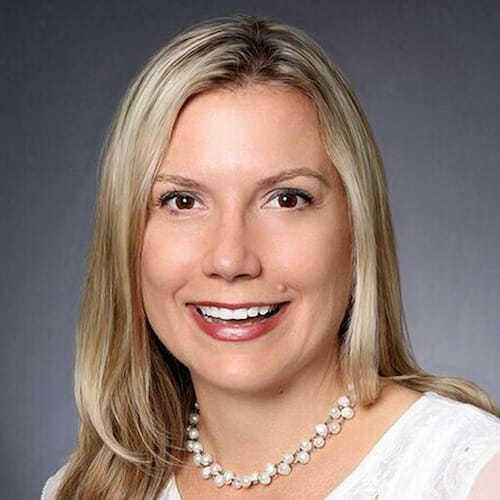

I first connected with Anne in August 2019. Her husband had passed away the year before and she was considering her options for the next phase of her life.
At the time, she was scheduled to have back surgery, so we put a tour on the calendar following her recovery. One thing led to another, and then the COVID-19 pandemic hit, and for two years we kept in touch via email and phone calls.
It wasn’t until March 2021 that we met in person and I gave her a tour of our community.
The way Anne tells the story, she first thought about moving to The Watermark at Trinity in 2018 after her husband’s passing. Her son asked her what she planned to do, and she said, “I’ll either stay in the house or I’ll go to the community being built down the road.” That was a year before she contacted our sales department.
She recalls checking our website periodically but not being ready to take the next step. And having conversations with her sons about how nice it would be if she lived closer to them.
We connected and kept in touch, and she continued to think about her next steps. The final piece of the puzzle for Anne was learning that an old friend had moved to our community. That was all that it took for her to be ready to make the move.
So, in April 2022 after a four-year journey, Anne became a resident of The Watermark at Trinity.
In hearing Anne’s story, it became apparent that there are things that we can do as sales professionals to make the move-in decision process easier for prospective residents.
1. Be patient and listen
For Anne, it was four years from the time she thought about moving to an independent living community to the day she became a resident. Although the COVID-19 pandemic certainly affected this timeline, it’s not unusual for this process to take several years. In my experience, the sales cycle can be anywhere from six months to 10 years. It all depends on the individual and his or her situation.
It’s important to be patient during this time. You aren’t selling a car. This is a life-altering decision, and there often are barriers keeping someone from moving. It’s important to listen and understand those barriers so you know the next step in the process.
2. Get to know the individual personally
Getting to know your prospects on a personal level also can provide valuable insight into where his or she is on the journey. For instance, knowing Anne would be having back surgery told me that her move-in would not be immediate. It also gave me a creative way to check in with her and let her know I was thinking about her.
When you start to form a personal relationship with people, sales follow-ups become less about making a sale and more about staying connected. Your follow ups also can be more creative, like the gift basket I sent Anne following her surgery. When she moved in, she told me it was nice knowing that she already had a friend here.
3. Care more about the person than the sale
To succeed in senior living sales, you must care more about the person than the sale. I see myself as more of a counselor than a sales professional, because a big part of our job is listening and understanding what is important to each person. Our goal should be to help people because we’re ultimately selling a lifestyle, and it’s important that that lifestyle is right for the individual.
In talking with Anne, I knew that she would thrive at our community. I also cared deeply about her taking her time and ensuring that moving in was the right decision for her.
It’s been several months since Anne moved to The Watermark at Trinity, and she truly is thriving. She attends exercise classes Monday through Friday and is engaged in our programs and events. She told me that she feels as if she’s finding herself again, and she doesn’t regret her decision one bit.
Her positive feedback is a welcome reminder of how we as senior living sales associates are helping people each day. Although our job title may include the word sales, what we do is so much more important.
Jennifer Baum is the sales director at The Watermark at Trinity, an independent, assisted living and memory care community in Trinity, FL.
The opinions expressed in each McKnight’s Senior Living guest column are those of the author and are not necessarily those of McKnight’s Senior Living.
Have a column idea? See our submission guidelines here.


